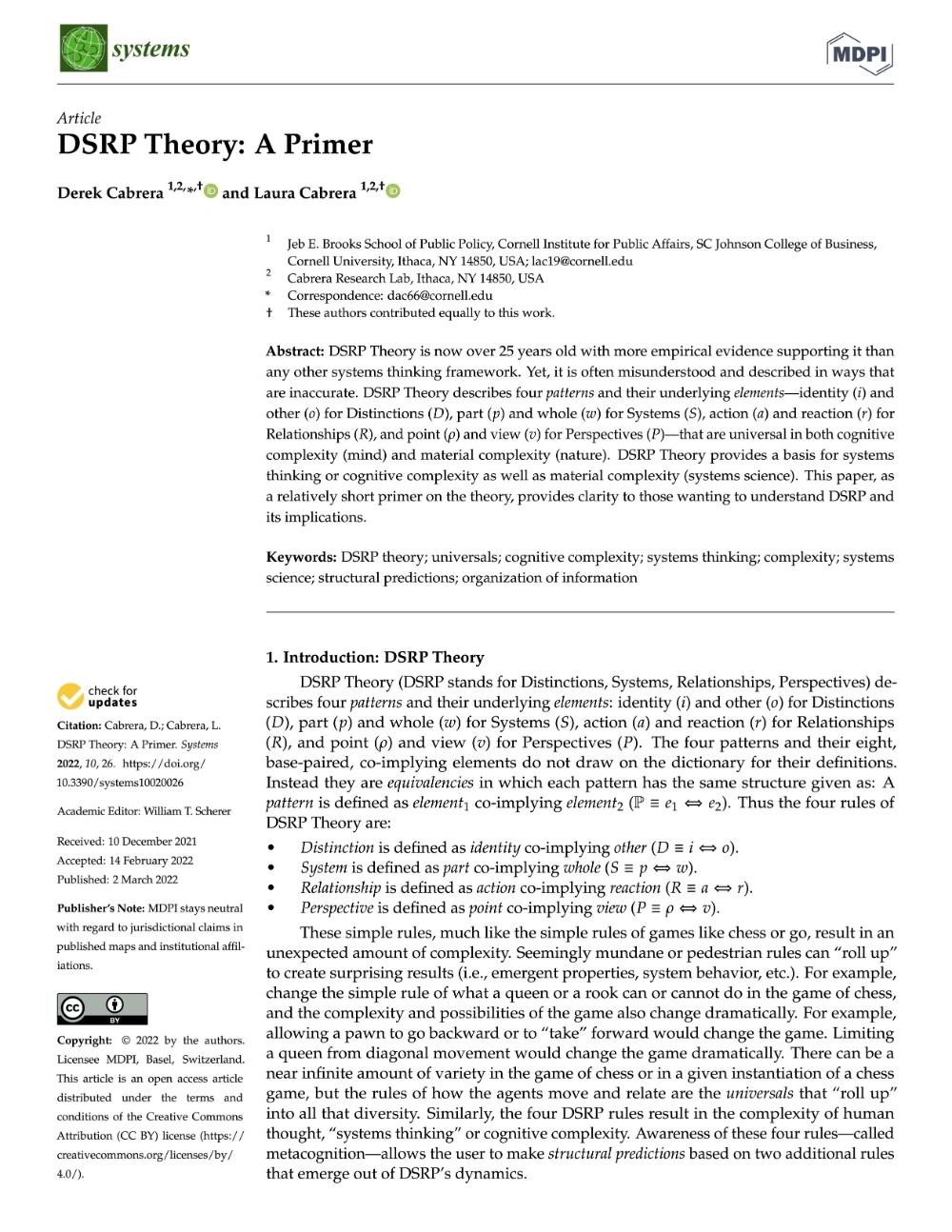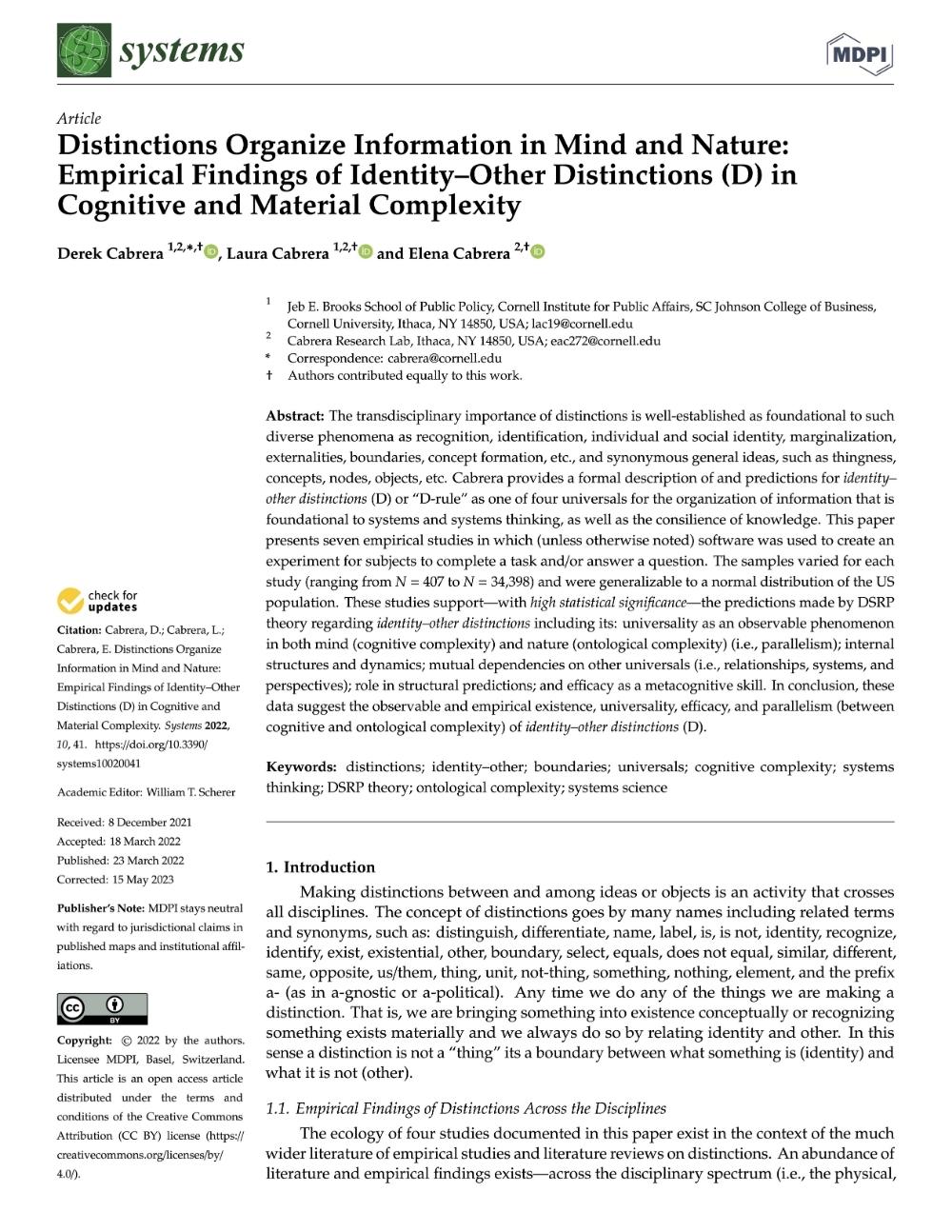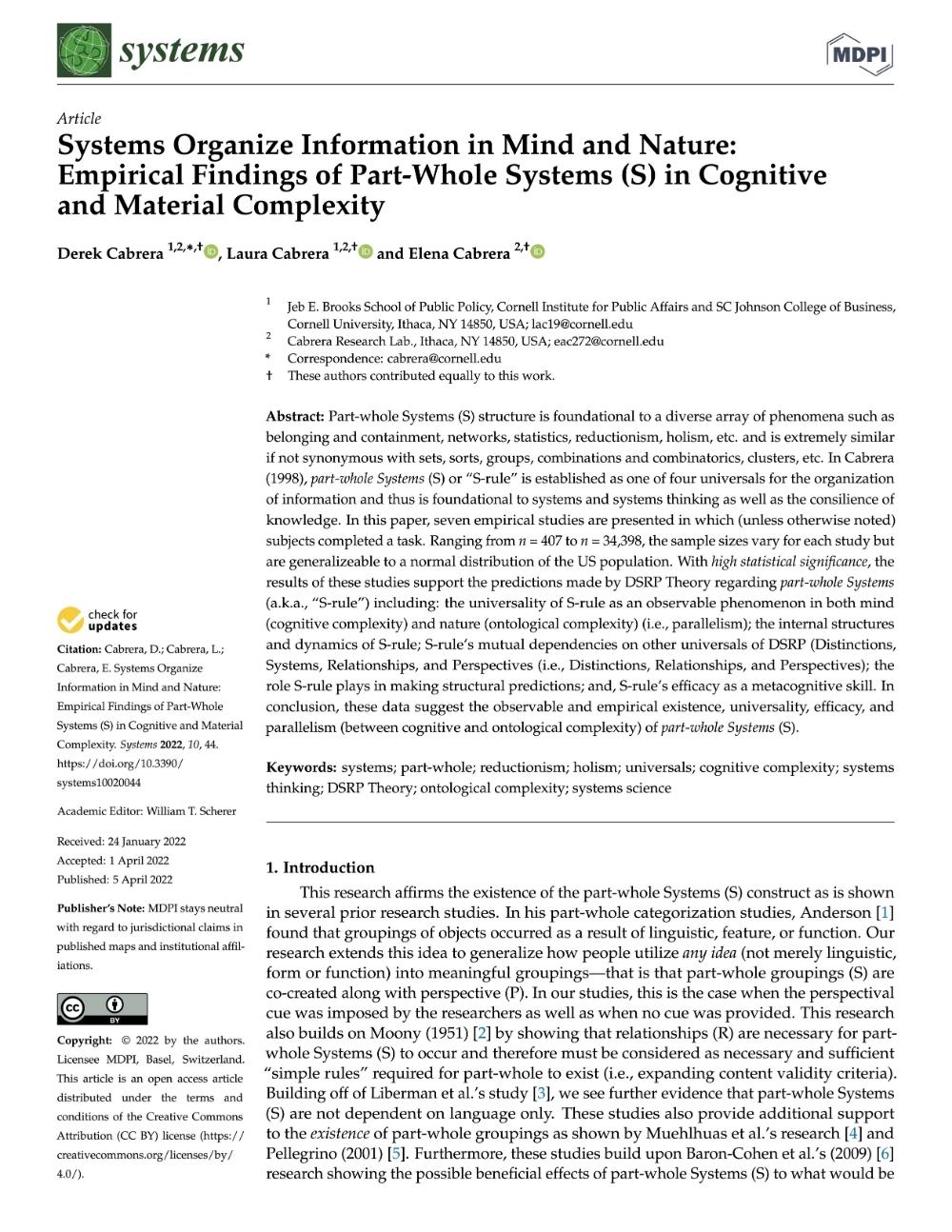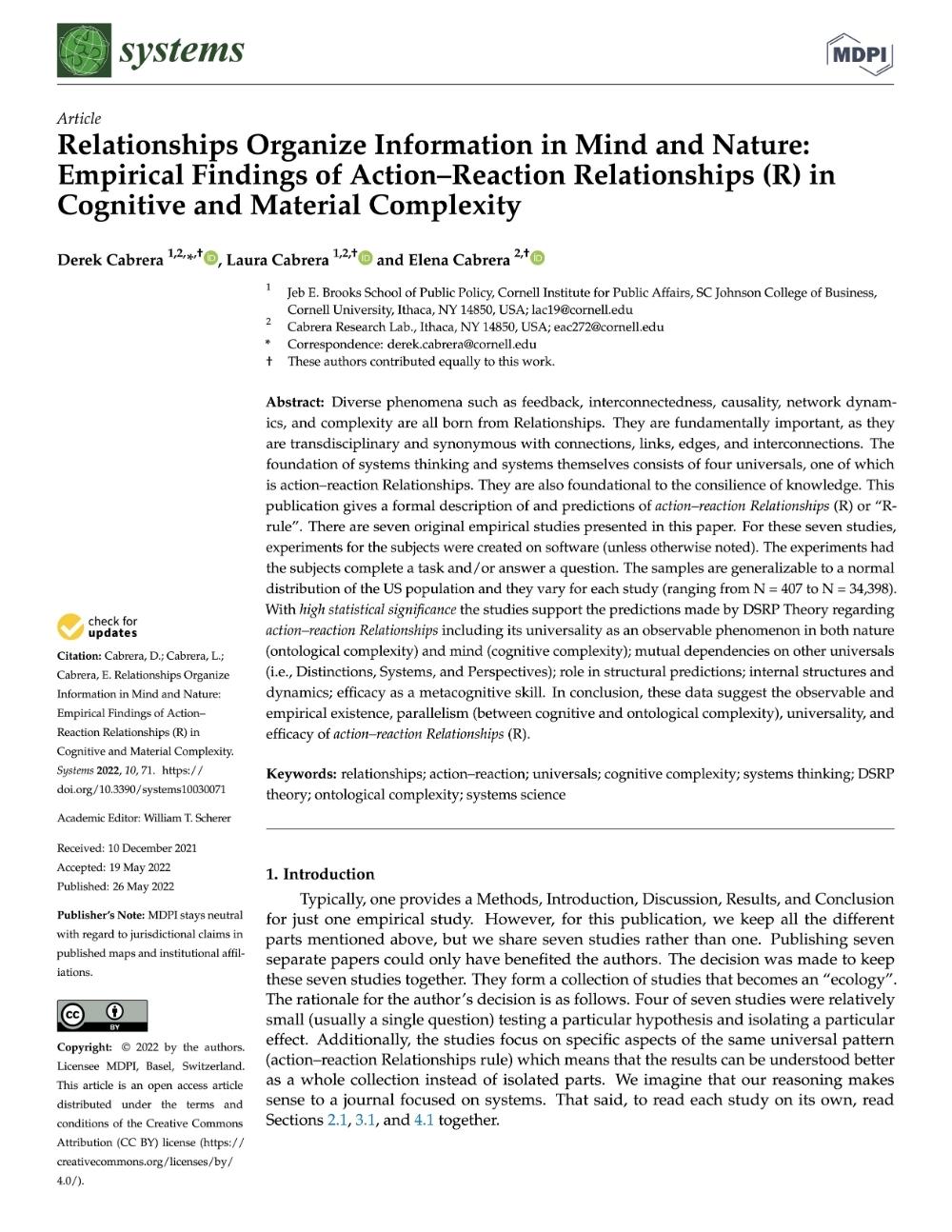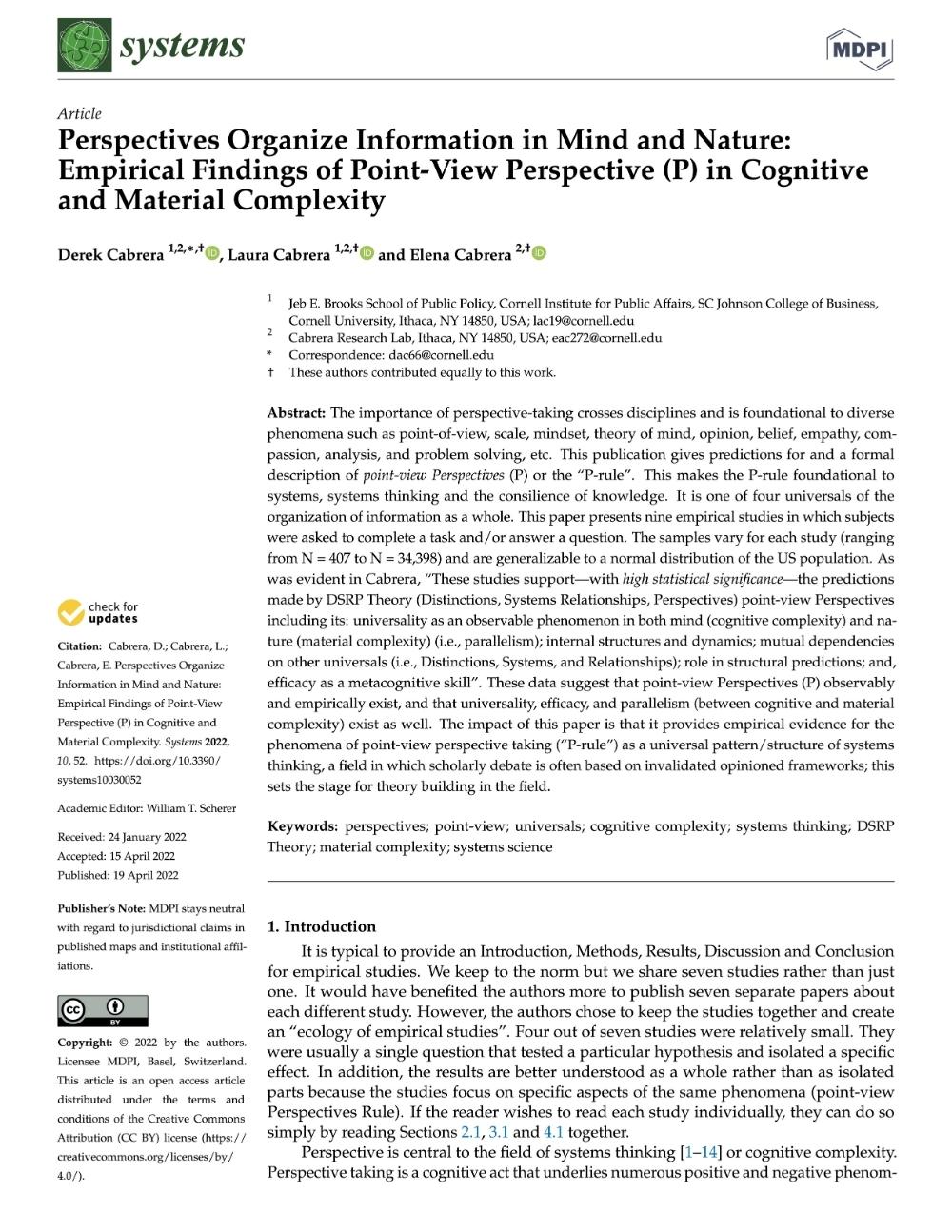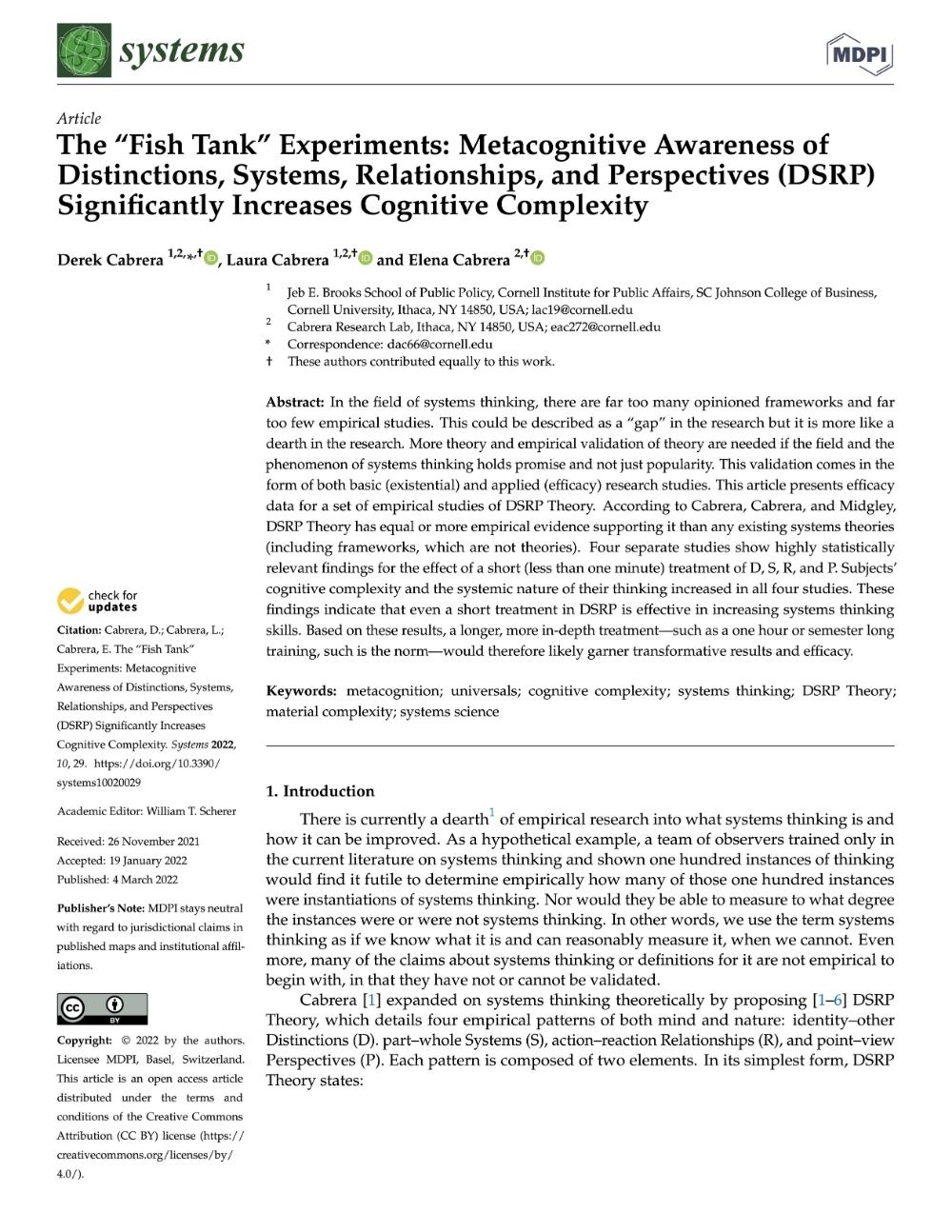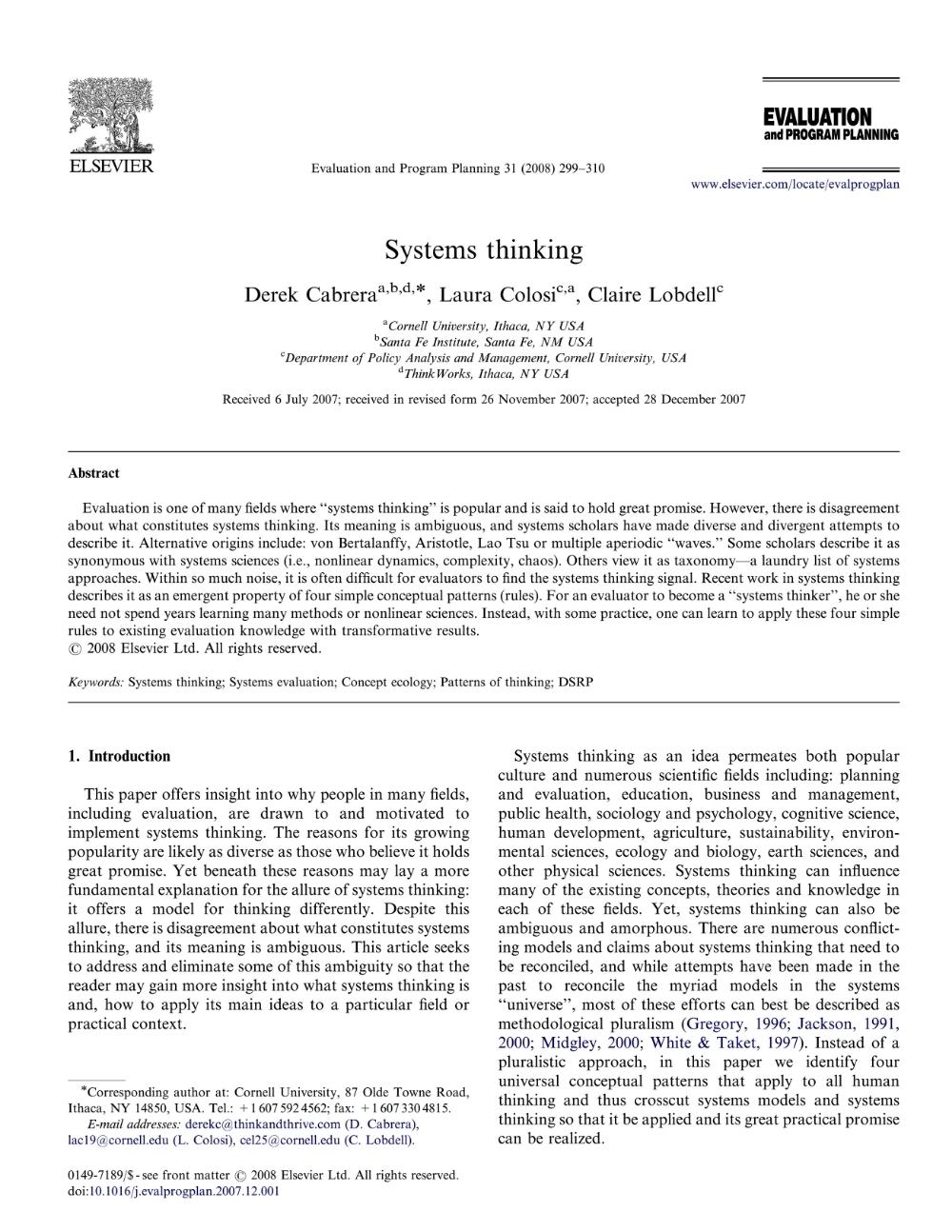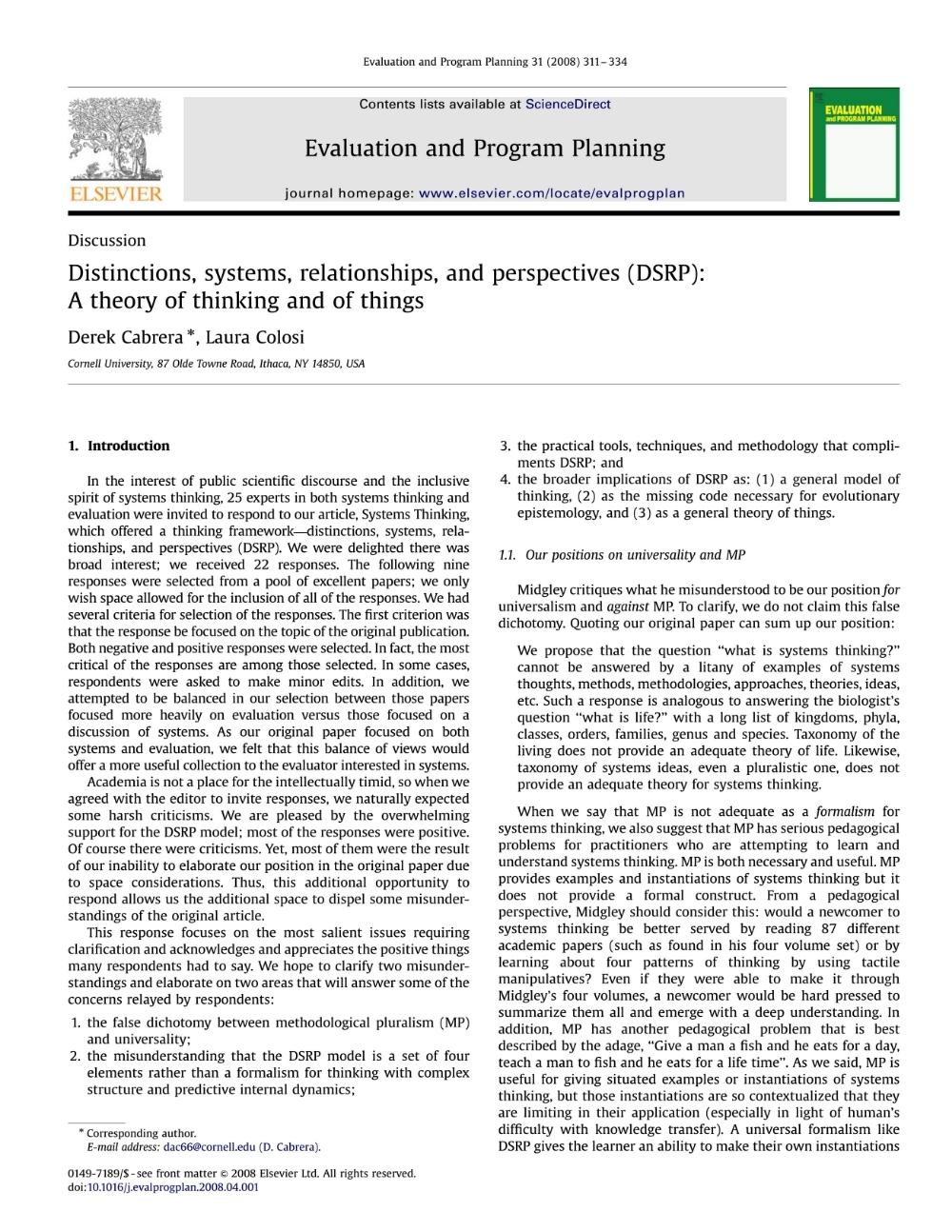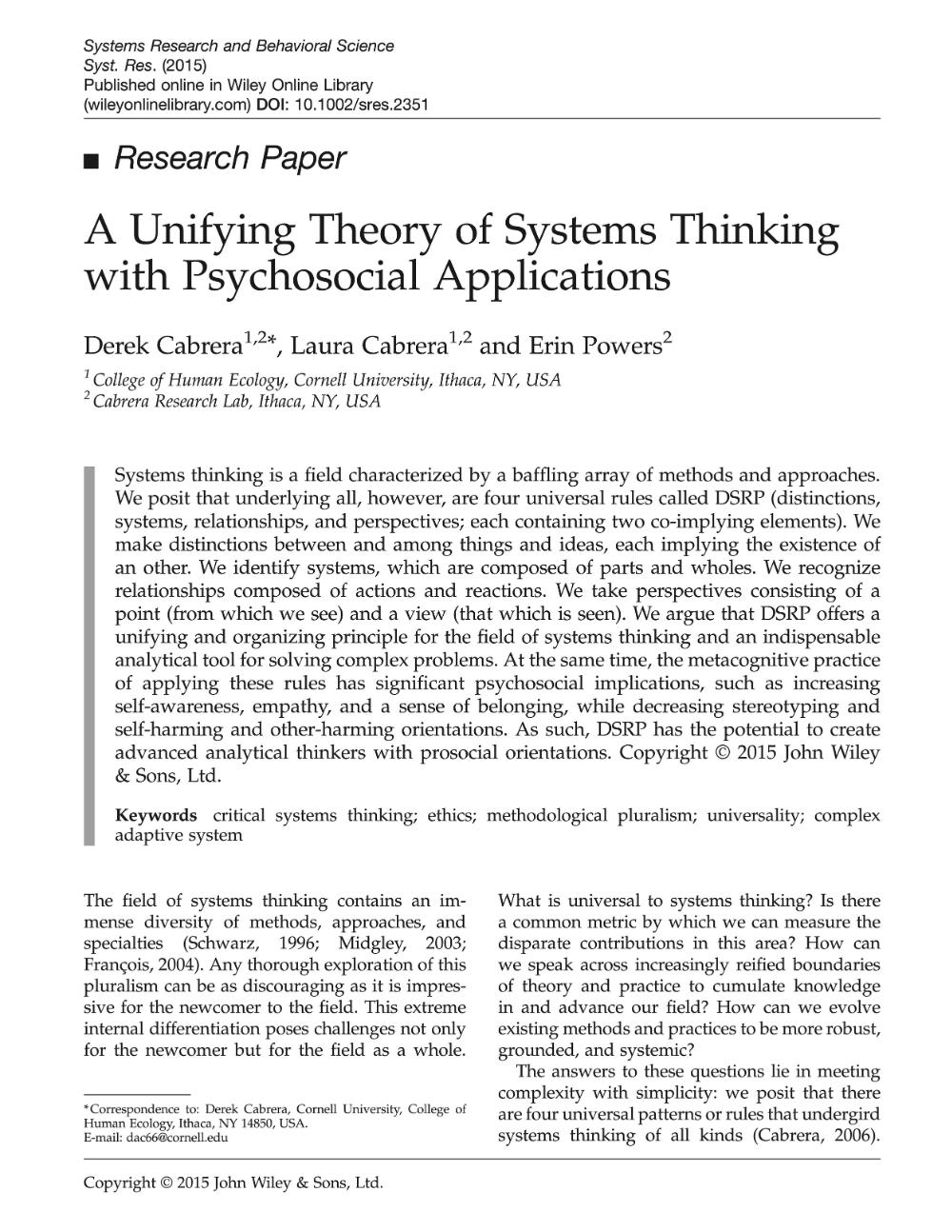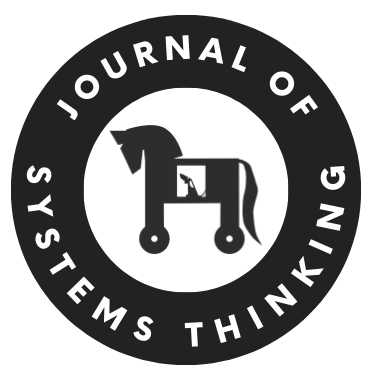Proven, credible research.
Recent publications
Discover our world-class research, encompassing technical details, experimental results, and practical applications. All resources are available for free download in our dedication to public understanding and accessibility.
Access the bibliography.
Unlock a treasure trove of knowledge for free! Gain access to our extensive bibliography of over 500 downloadable articles by filling out the form. We are dedicated to making our wide range of publications available to the public.
Academic Integrity
In accessing these resources--that represent a substantial amount of academic work product--I agree that I will adhere to academic integrity standards by sourcing and citing any derivative works. Citation example: Cabrera, D.; Cabrera, L. DSRP Theory: A Primer. Systems 2022, 10, 26. https://doi.org/10.3390/systems10020026 Accessed on [date] at help.cabreraresearch.org/

Academic Integrity
Frequently asked questions.
What is DSRP Theory?
DSRP Theory, which stands for Distinctions, Systems, Relationships, and Perspectives, is a systems thinking framework that describes four patterns and their underlying elements. It is a theory that explains how information is organized, arranged, and interconnected, both in cognitive complexity (mind) and material complexity (nature). DSRP Theory provides a basis for understanding systems thinking and cognitive complexity, as well as material complexity in systems science. It is important to understand that while DSRP Theory makes many predictions about the world (numerous of which have been shown empirically), it is very simple and based on just 4 patterns and 8 elements shown in the table below:
| Pattern | = | Element1 | ↔︎ | Element2 |
| Distinctions (D) | identity (i) | other (o) | ||
| Systems (S) | part (p) | whole (w) | ||
| Relationships (R) | action (a) | reaction (r) | ||
| Perspectives (P) | point (p) | view (v) |
The nice thing about DSRP is that these 4 patterns and 8 elements, while surprisingly simple, are the basis by which you make all of your mental models of the world (cognition) and also the way the world is structured to begin with (physical reality). In other words, it is the way information is organized. The goal in practicing DSRP is simply to align/fit the structure of your mental models with the structure of the real world.
What is Mental Fitness?
Mental fitness refers to the overall state of one's mental well-being and cognitive abilities. It encompasses various aspects such as emotional resilience, cognitive flexibility, problem-solving skills, and the ability to manage stress and adapt to challenges. Just as physical fitness is important for maintaining a healthy body, mental fitness is crucial for maintaining a healthy mind. It involves practicing specific moves to avoid biases. By prioritizing mental fitness, individuals can enhance their cognitive functioning, emotional well-being, and overall quality of life.
How does DSRP Theory apply to mental fitness?
DSRP Theory is related to mental fitness in the sense that it provides a framework for understanding and improving cognitive complexity and metacognition, which is a key aspect of mental fitness (getting your mental models to fit to reality). By developing an awareness of the Distinctions, Systems, Relationships, and Perspectives within our thinking, we can enhance our ability to analyze and understand complex systems, solve problems, navigate emotions and bias, and think critically. This increased cognitive complexity can contribute to mental fitness by improving our cognitive flexibility, problem-solving skills, and overall mental agility. By incorporating DSRP principles, the 4 patterns, and 8 elements into our thinking processes, we can enhance our mental fitness and improve our ability to navigate and understand the complexities of the world around us.
How can I develop my practice of systems thinking and mental fitness?
The science behind DSRP–the principles, the 4 patterns, and 8 elements–provide the basis for the practice of mental fitness through cognitive movements or “moves.” By learning and practicing these moves, just like you would practice yoga moves or push ups, pull ups and squats, you will develop your mental strength and agility. People report (and research supports) that the benefits of this practice are immediate. You will see changes in your thinking in minutes and you’ll typically feel significant changes in your mental fitness within a week or two of practice.
Who is it for? Is this for me?
Systems thinking and mental fitness is for everyone. So, yes, it is for you. We train all kinds of people… We train scientists and engineers at the cutting edge of their fields, business executives in the Silicon Valley at the cutting edge of innovation, policy makers dealing with the most wicked problems society faces, professional athletes, and special forces operators. But, we also train preschoolers, K-12 teachers and homeschoolers, and parents. If you are human, then you live and work in systems that require you to be mentally fit to survive and to thrive.
Where can I learn more?
There are many ways to learn. If you want to do-it-yourself, read our books or papers or ask our AI-powered chatbot (who has been trained on our corpus) a question. If you want some structure and guidance, complete one of our online courses and join the community hub.
Our peer reviewed journal.
The Journal of Systems Thinking (JoST) (ISSN 2767-3847) is the first and only open-access post-publication peer-reviewed (PPPR) journal dedicated to basic scientific research, innovation, and public understanding in the areas of systems thinking, mental fitness, cognitive complexity, visual complexity, organizational complexity, and ontological complexity.
.png?width=150&height=150&name=CRL%20GOAT%20Logo%20(4).png)
